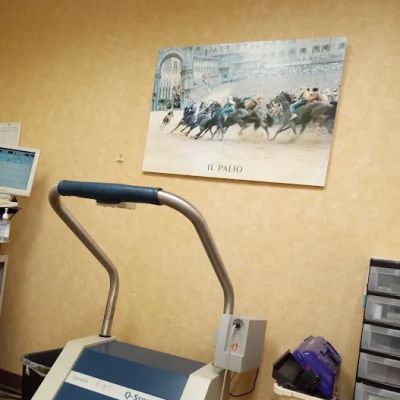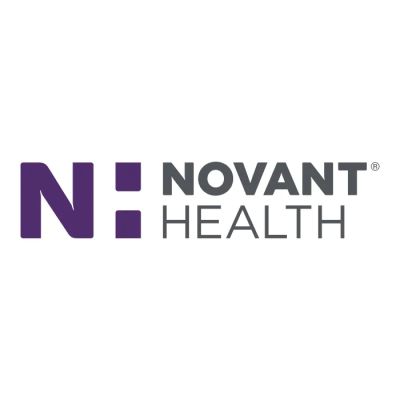Why Cutting Down on Sodium is Essential for Heart Health
When it comes to maintaining a healthy heart, diet plays a crucial role, and one of the most significant factors is sodium intake. I never fully understood the connection between sodium and heart disease until I started researching it for myself. Once I understood how much it could impact my health, I decided to make a change. I realized that many people, like me, aren't fully aware of how sodium affects heart health. In this article, I want to share the insights I discovered about how reducing sodium intake can significantly lower your risk of heart disease.

The Link Between Sodium and Heart Disease
Before diving into how to reduce your sodium intake, it’s important to understand why it matters so much. Sodium is essential for our bodies, but too much of it can lead to serious health issues, particularly heart disease. Excess sodium leads to water retention in the body, which increases blood volume. This, in turn, raises blood pressure and puts additional strain on the heart and blood vessels. High blood pressure is one of the main risk factors for heart disease, and by controlling your sodium intake, you can significantly reduce this risk.
Through my own experience, I learned that consuming too much sodium was a silent contributor to my blood pressure. I didn't even realize the toll it was taking on my health until I made a conscious effort to reduce it. My journey was eye-opening, and I want to share some strategies that can help you reduce your sodium intake too.
Atlanta Heart Specialists
atlanta heart specialists
4375 Johns Creek Pkwy #350, Suwanee, GA 30024, USA

1. Understand Where Sodium Hides
One of the biggest challenges I faced in cutting back on sodium was realizing how much of it was hidden in foods I didn't expect. While it's easy to assume that processed snacks, fast food, and canned goods are the biggest culprits, the reality is much more complex. For instance, bread, sauces, and even certain dairy products contain surprising amounts of sodium. I found it useful to begin reading food labels more carefully. The "sodium" line on the nutrition facts is often an eye-opener. Pay attention to serving sizes as well because they can be misleading.
2. Incorporate Fresh and Whole Foods into Your Diet
When I started focusing on a low-sodium diet, I found that fresh fruits and vegetables became my best friends. Not only are they naturally low in sodium, but they are also rich in potassium, a nutrient that helps balance sodium levels in the body. I made it a point to eat a wide variety of colorful vegetables and fruits like bananas, spinach, sweet potatoes, and avocados. Whole grains like brown rice, quinoa, and oats also became staples in my meals, providing essential nutrients without the added sodium.
Incorporating more fresh, whole foods into my meals didn’t just reduce my sodium intake; it also made me feel more energized and healthier overall. I began to notice improvements in my mood and energy levels, which was a huge bonus on top of the health benefits for my heart.
3. Use Herbs and Spices to Flavor Your Meals
One of the hardest parts of reducing sodium is dealing with bland food. I was used to the strong flavors that salt and processed seasonings brought to my meals. But when I started using fresh herbs and spices instead, I was surprised at how flavorful food could still be. Garlic, oregano, basil, thyme, and cumin are just a few of the herbs and spices that can bring flavor without adding sodium. I also started using vinegar, lemon juice, and even unsalted mustard to give my meals a burst of flavor.
4. Choose Heart-Healthy Snacks
Snacking was another area where I realized I could easily reduce my sodium intake. Instead of reaching for chips, salted nuts, or processed snacks, I started choosing healthier alternatives. Fresh fruit, raw veggies with hummus, or a small handful of unsalted almonds became my go-to snacks. Not only did these alternatives help reduce my sodium intake, but they also provided more fiber, healthy fats, and other essential nutrients.
5. Cook More at Home
One of the best decisions I made was to cook more meals at home. By preparing my own food, I had complete control over what went into my dishes. When eating out, it’s difficult to know exactly how much salt or sodium has been added to your meal. Cooking at home allowed me to use fresh ingredients and control the seasoning. Over time, I became more confident in my cooking abilities and found that homemade meals tasted much better than restaurant food.
6. Be Mindful of Sodium in Processed Foods
Processed foods are one of the leading contributors to high sodium intake, and I learned this the hard way. Packaged foods like frozen meals, soups, deli meats, and snack items often contain large amounts of sodium to preserve freshness and enhance flavor. I started by cutting back on processed snacks and replacing them with healthier, whole foods. While it was a bit of a transition at first, it was totally worth it. My blood pressure started improving, and I felt more in control of my health.
7. Stay Hydrated and Exercise Regularly
While reducing sodium intake is crucial, staying hydrated and engaging in regular exercise are also essential components of heart health. I began drinking more water throughout the day and reduced my intake of sugary drinks and sodas. Exercise, especially cardiovascular activities like walking, running, or cycling, can help lower blood pressure and improve heart function. A combination of healthy eating, hydration, and regular physical activity allowed me to feel stronger and healthier overall.
8. Track Your Progress and Be Patient
As with any health journey, progress takes time, and it’s important to be patient with yourself. I kept a food journal to track my sodium intake, and over time, I began to notice significant improvements in my health. It wasn’t always easy, but making small, consistent changes paid off. My blood pressure went down, I felt more energized, and I noticed fewer heart disease risk factors overall. It was rewarding to see the results of my efforts, and I encourage anyone making similar changes to do the same.





















Deborah Heart and Lung Center
deborah heart and lung center
200 Trenton Rd, Browns Mills, NJ 08015, USA